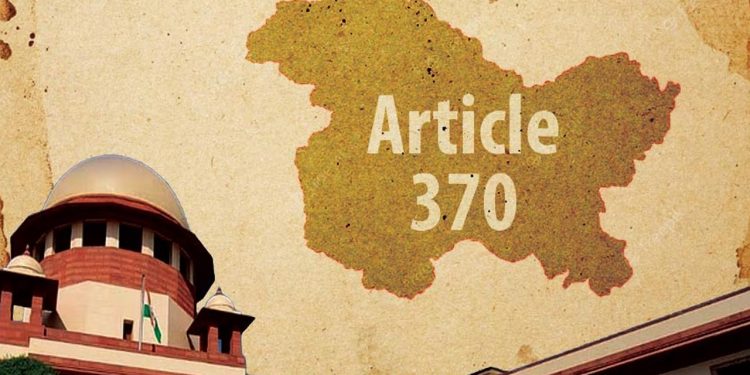The Supreme Court verdict validating the abrogation of Article 370 according special powers to the erstwhile state of Jammu and Kashmir could not come at a more opportune moment for the BJP which is already basking in the glory of crucial victory in the Assembly elections to Rajasthan, Madhya Pradesh and Chhattisgarh. Prime Minister Narendra Modi-led BJP is all set to go to Lok Sabha polls a few months away with renewed vigour and a confidence that seemed to be ebbing away only a few weeks back. When the Modi government revoked Article 370 of the Constitution on 5 August, 2019, it acted to fulfil its long-standing electoral pledge virtually triggering a constitutional-political controversy. The provision had granted special privileges to the people of Jammu & Kashmir state. The Assembly, overseeing the state’s budget, spending, employment, education, and economic activity, was dissolved. It appeared in one fell stroke the government not only made a surgical strike at the Constitution, but also played havoc with the state’s character bifurcating it into two Union Territories downgrading the status of a full-fledged state. Article 370 enabled J&K to make its own rules relating to permanent residency, ownership of property and fundamental rights. It could also bar Indians from outside the state from purchasing property or settling there.
The BJP had long opposed Article 370 and clamoured for scrapping it to integrate Kashmir and put it on the same footing as the rest of India. After returning to power with a massive mandate in the April-May general elections in 2019, the government lost no time in acting on its pledge. Critics have apprehension that the BJP ultimately wants to change the demographic character of the Muslim-majority region by allowing non-Kashmiris to buy land there.
A batch of nearly 23 petitions was filed in the Supreme Court challenging the abrogation. The state comprised the Muslim-majority Kashmir valley, the Hindu-dominated Jammu region and the high altitude Buddhist enclave of Ladakh. The petitioners argued that the state’s reorganisation into Jammu and Kashmir and Ladakh as federally administered territories violated India’s Constitution, which requires the state legislative Assembly’s approval to reduce a state to a Union territory. The apex court took almost the entire tenure of the government to deliberate on the momentous issues involved to pronounce its verdict. The verdict has made the ruling party jubilant and the main regional players of J&K disappointed.
The verdict, it appears, has sought to take a balanced position on the thorny matter. The apex court has given its seal of approval to the government’s act of repealing the special constitutional provision, but at the same time it has questioned the wisdom of the decision to reduce a state into a Union territory. In its opinion a fresh call needs to be taken on the matter. The court held that the government should hold elections in the region latest by September 2024. This is one way to ensure that the government honours its promise of upgrading the status of J&K from a UT to a state.
The Bench, headed by Chief Justice of India DY Chandrachud, has held that the state of Jammu and Kashmir does not have internal sovereignty different from other states. It means retention of Article 370 is untenable. In fact, the provision was included in the Constitution as a temporary feature. The question is what length of time a “temporary” measure should take.
The verdict will have far-reaching political, economic and administrative consequences. The ruling party will predictably showcase it as an outcome of strong political will of the Modi government. As the verdict has proved, contrary to the arguments of the petitioners, the withdrawal of special powers from J&K is in accordance with the law, the Opposition – Congress and its allies – can now be questioned why the decisive step was not adopted during the past few decades.
Without internet for so many years and the local media muzzled openly, there is hardly any truth in the propaganda that the people of J&K will taste the fruits of prosperity once the state is stripped off its special powers and investments from outside will flow. While purchase of land in Kashmir was recently opened to citizens from other parts of India, the local prevailing situation has not been inviting enough for people to buy land or invest.
Now that Article 370 has become nonexistent, the political process of granting status of a full-fledged state to Jammu & Kashmir should start in earnest.







































